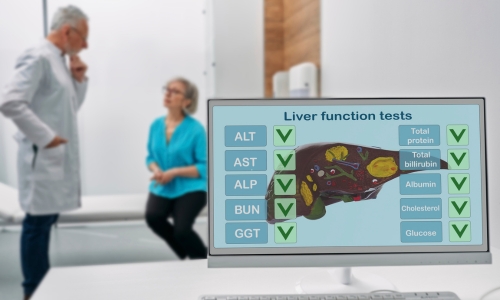The liver is a vital organ that plays a crucial role in maintaining overall health and well-being. As one of the largest and most complex organs in the human body, it performs numerous functions essential for life. In this comprehensive guide, we delve into the intricacies of liver function and liver health, offering insights from the best hepatologist to help you understand how to maintain optimal liver function.
The Role of the Liver in the Body
Detoxification and Metabolism
One of the primary functions of the liver is detoxification. It processes and removes toxins from the bloodstream, including drugs, alcohol, and metabolic waste products. The liver’s ability to metabolize these substances is vital for preventing toxic accumulation in the body. Additionally, the liver plays a key role in metabolism, converting nutrients from food into energy and storing glucose for later use.
Synthesis of Important Proteins
The liver is responsible for synthesizing several critical proteins, including albumin, which helps maintain blood volume and pressure, and clotting factors, essential for proper blood coagulation. These proteins are crucial for various bodily functions, including fluid balance and wound healing.
Bile Production and Digestion
The liver produces bile, a digestive fluid that helps break down fats in the small intestine. Bile production is essential for the absorption of fat-soluble vitamins (A, D, E, and K) and overall digestive health. Without adequate bile production, nutrient absorption can be compromised.
Common Liver Conditions and Diseases
Hepatitis
Hepatitis is an inflammation of the liver, often caused by viral infections. There are several types of hepatitis, including hepatitis A, B, and C, each with distinct causes and treatment options. Hepatitis can lead to chronic liver disease if left untreated, making early diagnosis and management crucial.
Fatty Liver Disease
Fatty liver disease occurs when excess fat accumulates in the liver cells. This condition can be categorized into non-alcoholic fatty liver disease (NAFLD) and alcoholic liver disease. NAFLD is often associated with obesity and metabolic syndrome, while alcoholic liver disease results from excessive alcohol consumption.
Cirrhosis
Cirrhosis is a progressive liver disease characterized by the scarring of liver tissue. This condition can result from chronic hepatitis, alcohol abuse, or other liver disorders. Cirrhosis impairs liver function and can lead to complications such as liver failure or liver cancer.
Liver Cancer
Liver cancer or hepatocellular carcinoma is a serious condition that can develop in individuals with chronic liver disease or cirrhosis. Early detection and treatment are critical for improving outcomes and managing the disease effectively.
Maintaining Optimal Liver Health
Healthy Diet and Nutrition
A balanced diet is essential for maintaining liver health. Eating a variety of fruits, vegetables, whole grains, and lean proteins supports liver function and overall well-being. Limiting saturated fats, refined sugars, and processed foods helps reduce the risk of fatty liver disease and other liver-related conditions.
Regular Exercise
Engaging in regular physical activity is beneficial for liver health. Exercise helps maintain a healthy weight, improves insulin sensitivity, and reduces the risk of developing liver disease. Aim for at least 150 minutes of moderate aerobic activity per week to support liver function and overall health.
Avoiding Excessive Alcohol Consumption
Excessive alcohol consumption is a significant risk factor for liver disease. To protect liver health, it is crucial to limit alcohol intake or abstain entirely. If you choose to drink, adhere to recommended guidelines for alcohol consumption to minimize the risk of liver damage.
Regular Medical Check-ups
Routine medical check-ups and liver function tests are essential for monitoring liver health. Early detection of liver issues can lead to timely intervention and treatment, preventing the progression of liver disease. Consult with the best hepatologist for personalized advice and screenings based on your health history and risk factors.
Seeking Expert Care from the Best Hepatologist
For individuals experiencing liver-related symptoms or those at high risk for liver disease, consulting with a highly qualified hepatologist is crucial. The best hepatologist can provide expert diagnosis, treatment, and management for various liver conditions. Their expertise ensures that patients receive the most effective care tailored to their specific needs.
Conclusion
Understanding liver function and maintaining liver health are essential for overall well-being. By adopting a healthy lifestyle, seeking regular medical care, and consulting with the best hepatologist, individuals can support optimal liver function and reduce the risk of liver disease. Prioritizing liver health contributes to a healthier and more vibrant life.

